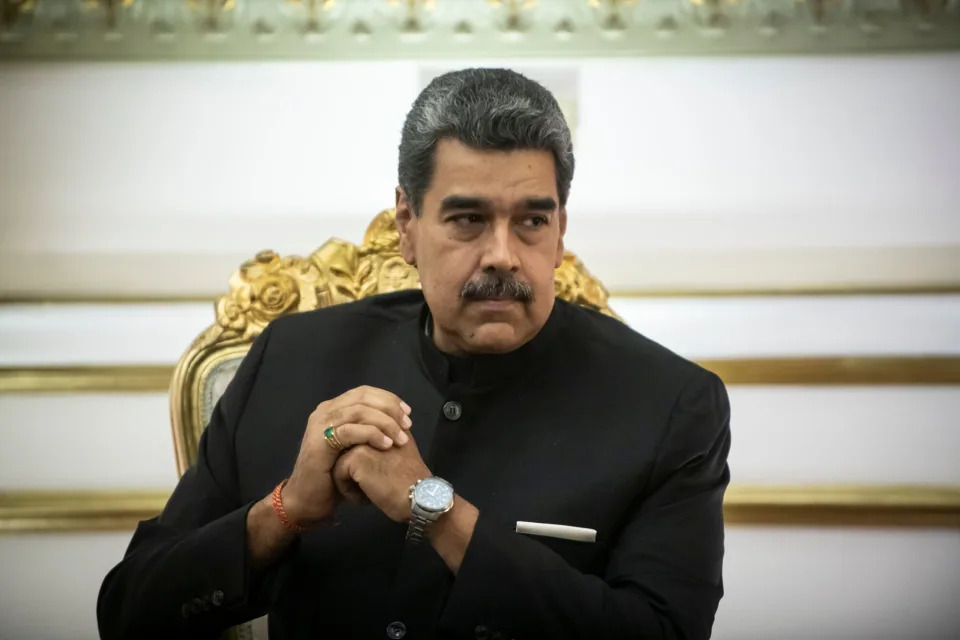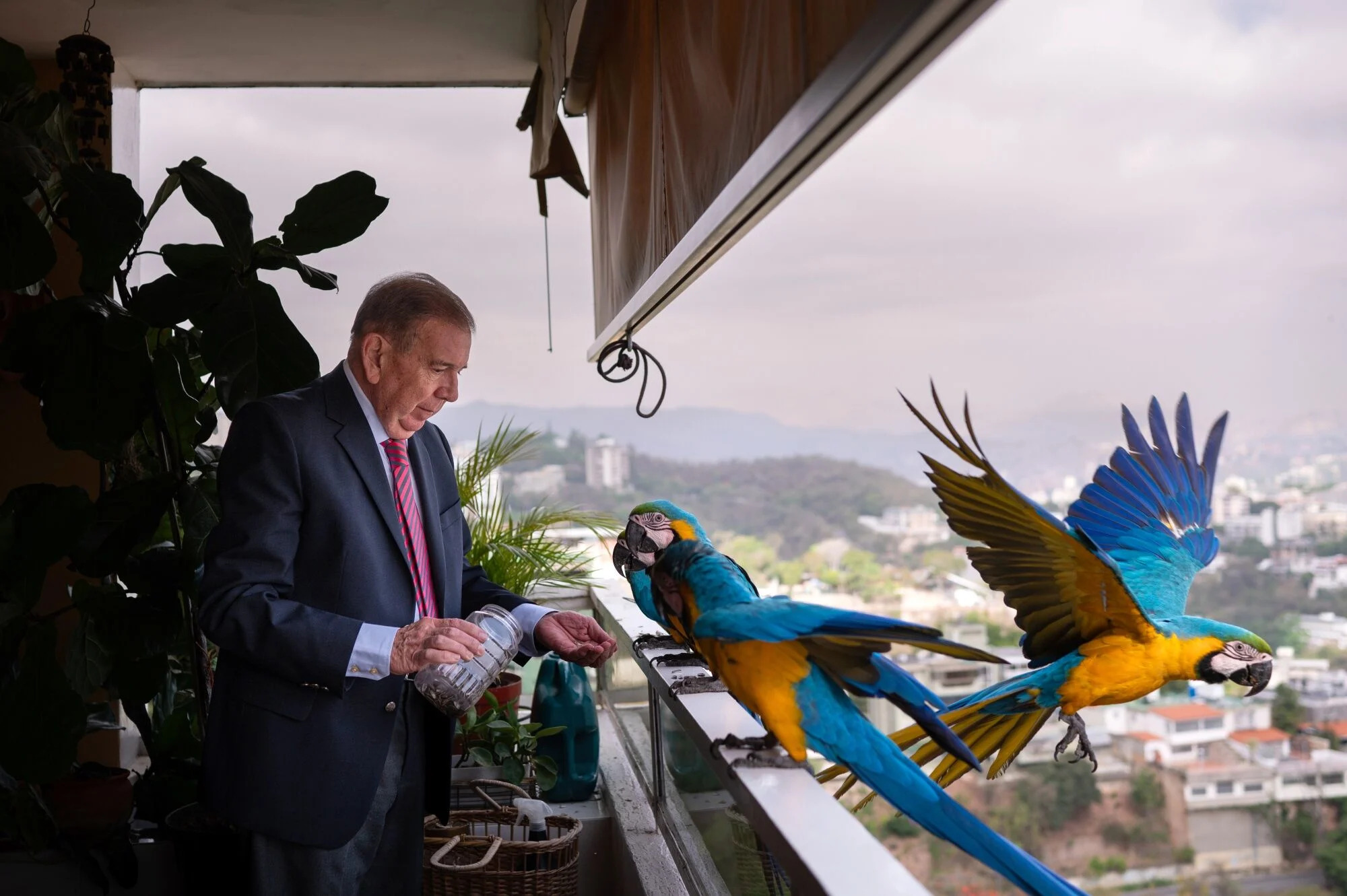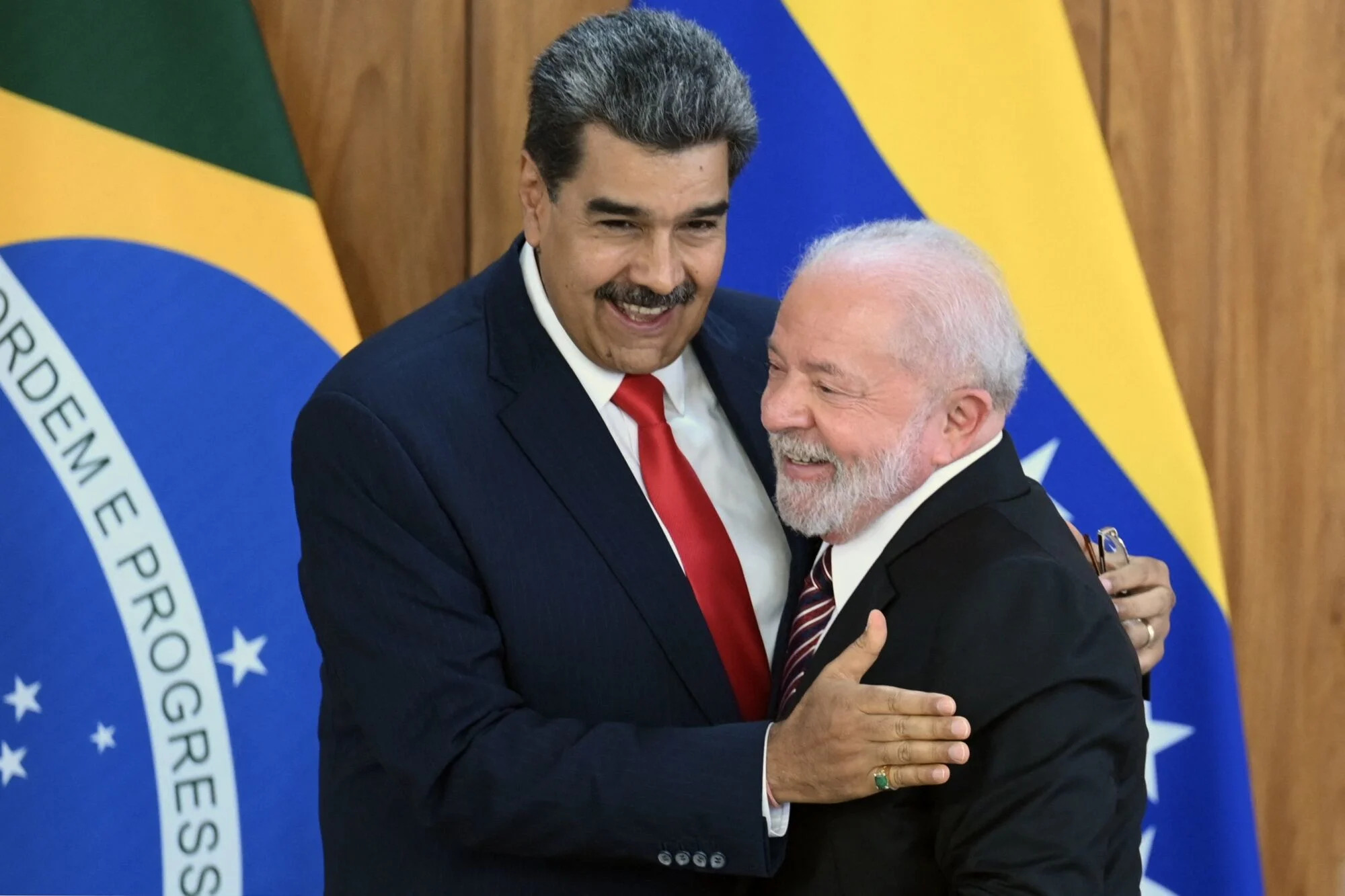After years of fits and starts, Venezuela is setting the stage for one of the largest and most complex debt restructurings in decades — unwinding a $154 billion web of defaulted bonds, loans and legal judgments owed to creditors from Wall Street to Russia.
President Nicolas Maduro’s government’s recent hiring of Rothschild & Co. as a financial adviser marks a first step in a massive undertaking that’s likely to drag on for years. But it’s a clear sign that Maduro is intent on re-inserting Venezuela — long an international pariah — back into global financial markets, building on the nascent economic rebound that’s taken hold after an unprecedented decade-long collapse.
It’s a task that dwarfs the size of other recent government debt overhauls and involves a mix of geopolitics, oil and finance.
“This would be the most complex restructuring since Iraq after the 2003 invasion,” said Mark Weidemaier, a law professor at the University of North Carolina who studies sovereign bond contracts.
Before talks with creditors can even begin, Rothschild bankers are sorting through the opaque world of debt markets to find out who is owed what, according to people familiar with the matter.
Maduro would also need to obtain relief from sanctions that prohibit Venezuela from issuing debt, and regain recognition from Washington. The two countries cut diplomatic ties in 2019 and the US doesn’t recognize Maduro as president.
Rothschild couldn’t be reached for comment on their work in Venezuela. A government press officer didn’t reply to messages seeking comment.
The likelihood Maduro’s government can check all the boxes and proceed with a restructuring seems so remote that investors have yet to fully factor it into the price of the bonds.
Venezuela owes an estimated $67 billion to bondholders after defaulting more than six years ago. Government securities are trading around 20 cents on the dollar, compared to 10 cents a year ago, and notes from state oil company, PDVSA, are going for around 12 cents, four times higher than a year back. The bonds got a boost after the US lifted restrictions on trading and JPMorgan Chase & Co. laid out a plan to re-weight the securities in widely followed emerging-market debt indexes.
“Debt restructurings take time for a reason,” said Edward Cowen, CEO at London-based money manager Winterbrook Capital, which holds the debt. “The government needs to deal with priorities as they arrive and this is not a priority.”
Still, some see a path emerging after the presidential election in July, which Maduro is almost certain to win. If the international community deems the vote fair, Maduro could start to regain his footing on the global stage.
“The probability of a restructuring process of the Venezuelan debt starting in 2025 is bigger than the market is pricing or expecting,” said Alejandro Grisanti, director at Caracas-based financial advisory firm Ecoanalitica.
A breakdown of Venezuela’s debt carried out by economist Francisco Rodriguez, a professor at the University of Denver, shows a mix of bonds, claims from legal judgments and bilateral loans to the likes of China and Russia.
Debt Reconciliation
The country began defaulting in 2017 as the economy tumbled and oil output slipped. Since then, the government has managed to bring some stability, ending years of hyperinflation and orchestrating some growth.
Read more: Chevron Dollars Cool Venezuela’s January Inflation to Decade Low
Oil production has rebounded, thanks to investment by US driller Chevron Corp., though at around 890,000 barrels a day the output remains far below the country’s peak of more than 3 million barrels.
“A debt restructuring will not be able to happen in a vacuum,” said Steven Kargman, founder and president of New York-based Kargman Associates, an international restructuring advisory firm. “There will also need to be a massive humanitarian relief effort for the Venezuelan people as well as a major reconstruction effort for the economy.”
Maduro has repeatedly said he’s willing to engage with bondholders to solve the debt problem and blamed sanctions for the lack of progress. As a gesture, his government unilaterally decided to push the statute of limitation on the bonds, a move intended to avoid a wave of forced and costly litigation. Although the decision was not enforceable in US courts due to the lack of recognition, it still sent a signal to investors.
Read more: Venezuela Offers to Suspend Deadline on $60 Billion of Bonds
The process of mapping out Venezuela’s obligations, known as debt reconciliation, can be made complicated when a country owes money to many different creditors, said Lee Buchheit, a lawyer with more than four decades of sovereign debt-restructuring experience.
In the case of Iraq’s $130 billion restructuring, the government had to settle more than 13,000 individual commercial claims, he said.
“Commissioning a debt reconciliation exercise at this stage does not portend an early restructuring of Venezuela’s external debt,” Buchheit said.
Venezuelan Opposition Leader Says He’d Be Open to Talks With Maduro
Venezuelan opposition candidate Edmundo González said that if he wins this year’s election he’d be open to talks with President Nicolás Maduro to ensure a smooth transfer of power.
González said he “does not rule out” using the period between his election and the start of his government to reach out to Maduro so that there’s a “normal transition.”
Maduro is seeking a third consecutive term in the July 28 vote, amid a wave of repression against opposition figures. At least five opposition members were barred last week from running for public office for as long as 15 years.
González said he wants to stabilize Venezuela’s currency, foster foreign investment and to free political prisoners, in a video posted to his social media and a Tuesday radio interview. The little-known former ambassador to Argentina was thrust into the spotlight last week when Venezuela’s 10-party opposition coalition backed him as their candidate.
Recent comments from Brazil’s Luiz Inacio Lula da Silva celebrating the opposition’s uniting behind a single candidate are a sign of the international community’s concern with the election’s legitimacy, he said.
Read More: Lula Welcomes United Opposition in Venezuela Race Against Maduro
María Corina Machado, who won the opposition primaries in October but was banned from running, endorsed González.
Lula Welcomes United Opposition in Venezuela Race Against Maduro
Brazil President Luiz Inacio Lula da Silva cheered the Venezuelan opposition’s decision to unite behind a single candidate, saying that it will set the stage for a potentially legitimate election in the beleaguered nation led by Nicolas Maduro.
“There’s something extraordinary happening in Venezuela,” the leftist Brazil leader said during a Tuesday press conference in Brasilia. “The whole opposition has gathered, the opposition is launching a single candidate, and there will be elections.”
Maduro has faced international blowback — including the reinstatement of US oil sanctions last week — for barring leading candidate Maria Corina Machado and her potential replacement from the July 28 election. After weeks of internal disputes that threatened to divide the opposition ahead of the contest, the 10-party coalition last weekend uniformly backed Edmundo Gonzalez, a little-known former ambassador, as its candidate.
Lula, a longtime ally of Venezuela’s socialist governments, joined in the criticism of Maduro in late March, saying that there was no explanation for blocking the registration of legitimate candidates. He had previously drawn backlash from the opposition for comments in which he urged Machado and her supporters to stop “crying” and choose a replacement, as his party had after his arrest ahead of Brazil’s 2018 election.
Read More: Maduro at Crossroads as Venezuela Opposition Joins Together
He also welcomed the possibility that international observers will monitor the election, and said he hoped a fair election could pave the way for the end of an economic crisis that has caused millions of Venezuelans to flee the country.
“I hope that Venezuela will return to normality, so that the US will lift sanctions and Venezuela can once again receive back the people who are leaving the country because of the economic situation,” Lula said.
The election, however, is taking place against the backdrop of Maduro’s crackdowns on opposition parties and figures, including the arrest of roughly a dozen of Machado’s campaign aides and allies. The Venezuelan leader needs at least one credible opponent to legitimize the race’s results, but with initial polls showing that a united opposition could defeat him, it remains unclear whether he will allow Gonzalez and the coalition to participate.
Read More: Lula Calls on Ally Maduro to Hold Fair Elections in Venezuela
Last week, Lula agreed with a proposal presented by Colombian President Gustavo Petro that calls for a democratic pact between the government and opposition to ensure that the loser is shielded from any type of political persecution.
The plan involves a plebiscite to be carried out together with the presidential vote to garner popular backing for the pact.





